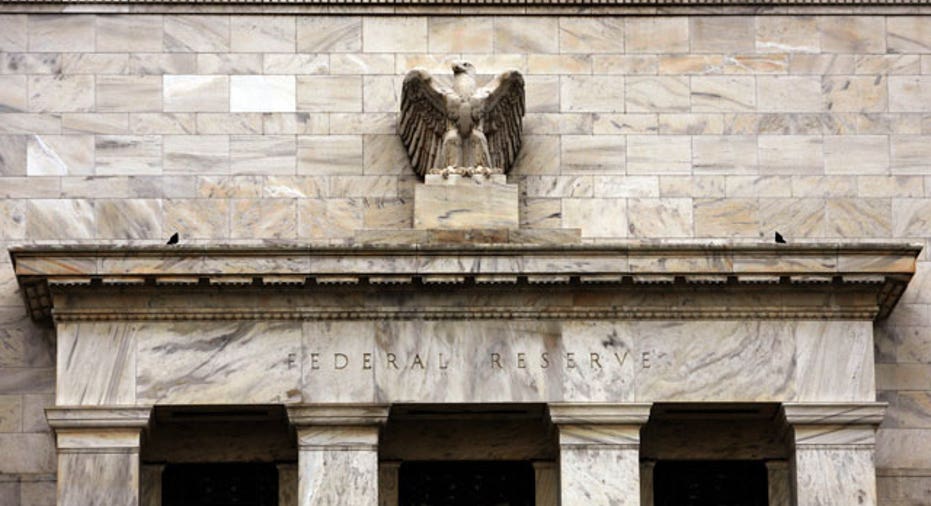Plosser: Fed May Tighten Policy Before Year-End

Weak jobs figures on Friday do not change the fundamental outlook for the U.S. economy and monetary policy could be tightened by the end of the year, a top Federal Reserve official said on Monday.
Philadelphia Federal Reserve Bank President Charles Plosser, a well-known inflation hawk who has a vote on policy this year, has said he believes the U.S. economy was in a gradual recovery.
"Certainly, the employment numbers that came out in the United States on Friday were disappointing... But I'm not seeing anything fundamental has changed in my view of the medium term outlook," he told reporters after a conference in Helsinki.
Asked about the chances of tighter policy in 2011, he said: "It's certainly possible by the end of the year," though he added much depended on how the economy performed.
U.S. nonfarm payrolls data on Friday showed employment rose by 54,000 last month, just over a third of what economists had expected, adding to growing concerns among economists about the strength of the world's largest economy.
He said it was still difficult to draw consistent conclusions on the impact of the Fed's second round of quantitative easing to support growth, dubbed "QE2." Financial markets have begun to discuss the chances of the Fed eventually embarking on another such round of easing -- for now seen as a very remote possibility.
Asked about a possible "QE3," Plosser said: "The hurdle rate for doing more is very high."
CONFIDENCE
Plosser, attending a conference hosted by the Global Interdependence Center and the Bank of Finland, also said that the American public's swing from deflation to inflation worries in the past year is "troubling."
The volatility suggests people have doubts about the Fed's ability to keep prices stable, he said, adding that confidence in the Fed is critical if the U.S. central bank is to exit easy policy without triggering higher inflation or hurting growth.
"It is troubling that the public's inflation concerns can be so volatile," he said.
"It suggests that there may be less confidence in the credibility of the Fed's commitment to price stability than we might desire," Plosser said.
Last summer, concerns the U.S. could face a sustained period of falling prices prompted the Fed to step in with the QE2 program, which is scheduled to end this month.
Recently, rising food and energy prices have fueled concerns about inflation. The Fed believes commodity price rises will be temporary and won't have a lasting impact on inflation.
Plosser said these swings in the public debate shows the need for clear communication from the Fed. He repeated his long-standing call for an explicit inflation target and a systematic exit plan from the Fed's extraordinarily easy monetary policy.
"Given the extraordinary amount of liquidity present in the U.S. banking system, it is reasonable for the public to be concerned about the prospects for inflation down the road," said Plosser, who has a vote on Fed policy this year.
The Fed cut interest rates at record lows near zero since December 2008 and has kept them there since. It has also bought bonds to further support the economic recovery, more than tripling its balance sheet to around $2.7 trillion.
NO HURRY TO TIGHTEN
At its April meeting, the Fed signaled it was in no rush to tighten monetary policy. But minutes of that meeting showed policymakers discussed potential exit strategy options at length.
Plosser said as the Fed normalizes policy, it should return to an operating framework in which the benchmark federal funds rate is the primary instrument of monetary policy. In this framework, the Fed's balance sheet should shrink to "probably less than than $1 trillion" so that the fed funds rate trades above the interest on excess reserves.
The interest on excess reserves is a new tool that Congress gave the Federal Reserve's Washington-based Board of Governors -- not the Fed's policy-setting committee -- during the financial crisis.
Plosser said he would find a "floor system" framework in which the interest on excess reserves rate is the de facto policy rate "troubling" as it puts no limit on the size of the balance sheet.
"If our operating framework divorces our balance-sheet decisions from monetary policy, it becomes a tempting instrument for future policymakers inside or outside the central bank to use it for non-monetary-policy purposes," Plosser said.
"This could jeopardize the independence of the central bank and, if abused, would be a source of many unforeseen problems."



















